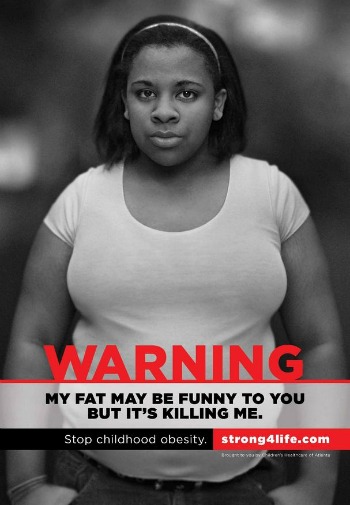
By NICK CHILES
One of the most difficult jobs for a parent to negotiate is dealing with an overweight child. It’s hard to know what to do, what to say, whether to say anything, what to cook, what not to cook—the list of questions can be endless. A new study published in the journal Pediatrics indicates that many parents are doing it wrong.
In fact, more than a third of overweight adolescents in a study by researchers from Yale say that they are actually bullied by their parents.
It’s not necessarily the nasty, mocking taunts they might hear from classmates, but it can be just as scarring, nonetheless.
“What we see most often from parents is teasing in the form of verbal comments,” Rebecca M. Puhl, director of research at Yale University’s Rudd Center for Food Policy and Obesity and the study’s lead author, told the New York Times.
The study looked at the experiences of 361 adolescents, age 14-18, enrolled at two national weight camps. Of the sample, 64 percent of the participants said they were bullied at school—and the risk of the bullying increased with body weight. The most common perpetrators were peers (92 percent) and friends (70 percent), followed by physical education teachers/sport coaches (42 percent), parents (37 percent), and teachers (27 percent). The most common form of bullying was verbal teasing (75–88 percent), relational victimization (74–82 percent), cyberbullying (59–61 percent), and physical aggression (33–61 percent).
As parents, we want our children to be perfect. It feels like an almost involuntary compulsion we have, to push them as close to perfection as we can. When they fall short, which inevitably of course they will—as humans, we can’t help it—it hurts us. And we are desperate to fix them. Fix it.
But when the imperfection is extra weight, sometimes trying to fix it can feel to the child like torturing and bullying.
With one of three American kids or teenagers considered overweight or obese, these questions of how to deal with these issues in our homes are crucial to the well-being of our children. The New York Times story recounted the tales of formerly overweight children who were irreparably harmed by well-meaning parents when they were younger.
According to the Times story, experts have recommendations for parents to help overweight children grapple with the adolescence:
Don’t blame your child for his weight.
¶ Don’t engage in “fat talk,” which means complaining about weight and appearance, whether it’s your own, your child’s or a celebrity’s.
¶ Don’t promise your child that if only he lost weight, he wouldn’t be bullied or teased.
¶ Don’t treat your child as if he has — or is — a problem that needs remedying.
¶ Don’t ignore or dismiss bullying. “Questions as simple as ‘Who did you sit with at lunch?’ can open a dialogue and help determine if she has allies or support at school,” Dr. Puhl told the Times.
¶ Explore your own biases around weight. “
¶ Focus on health, not weight. “Promote a healthy environment for everyone in the home,” says Dr. Puhl.
RELATED POSTS:
1. A Family Exercise Routine Keeps the Diabetes Monster Away From Black Children
2. Not All Sugar Is Sweet: 10 Great Tips For Staving Off Diabetes In Black Kids
3. Depressing Study: Exercise May Not Help Black Girls Stay Slim
4. It’s In the Jeans, Not the Genes: Understanding—and Curbing—Childhood Obesity
Denene Millner
Mom. NY Times bestselling author. Pop culture ninja. Unapologetic lover of shoes, bacon and babies. Nice with the verbs. Founder of the top black parenting website, MyBrownBaby.
- Web |
- More Posts





Great post!
One I would include is don’t under any circumstances put your beautiful child on an anti-obesity poster. I don’t care what the intention is it’s despicable.
I love the other points in the article. My parents did exactly the opposite of every point made, including sending me away to live at a hospital for 7 months to lose weight. It was the worst mistake they could have made.